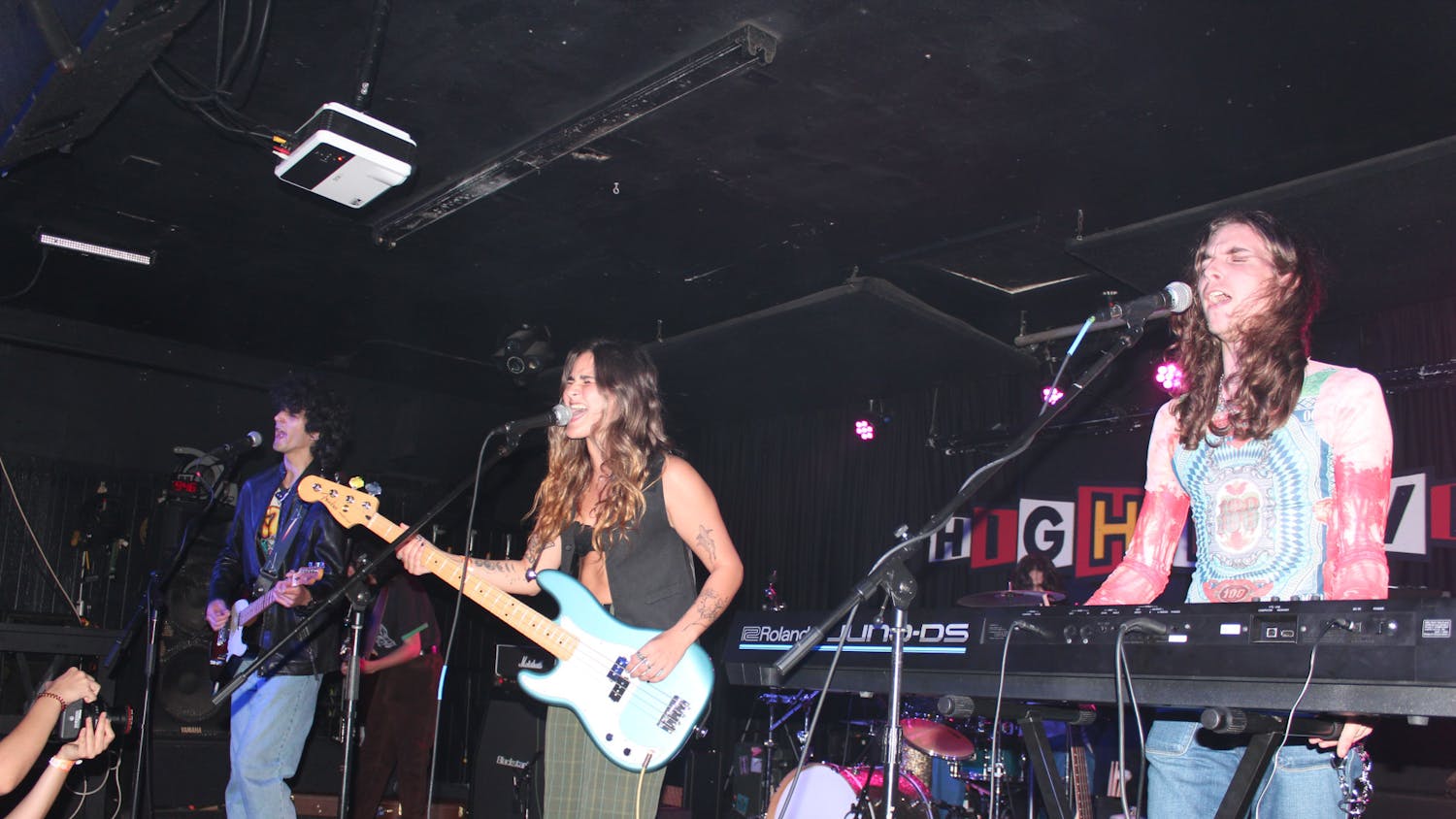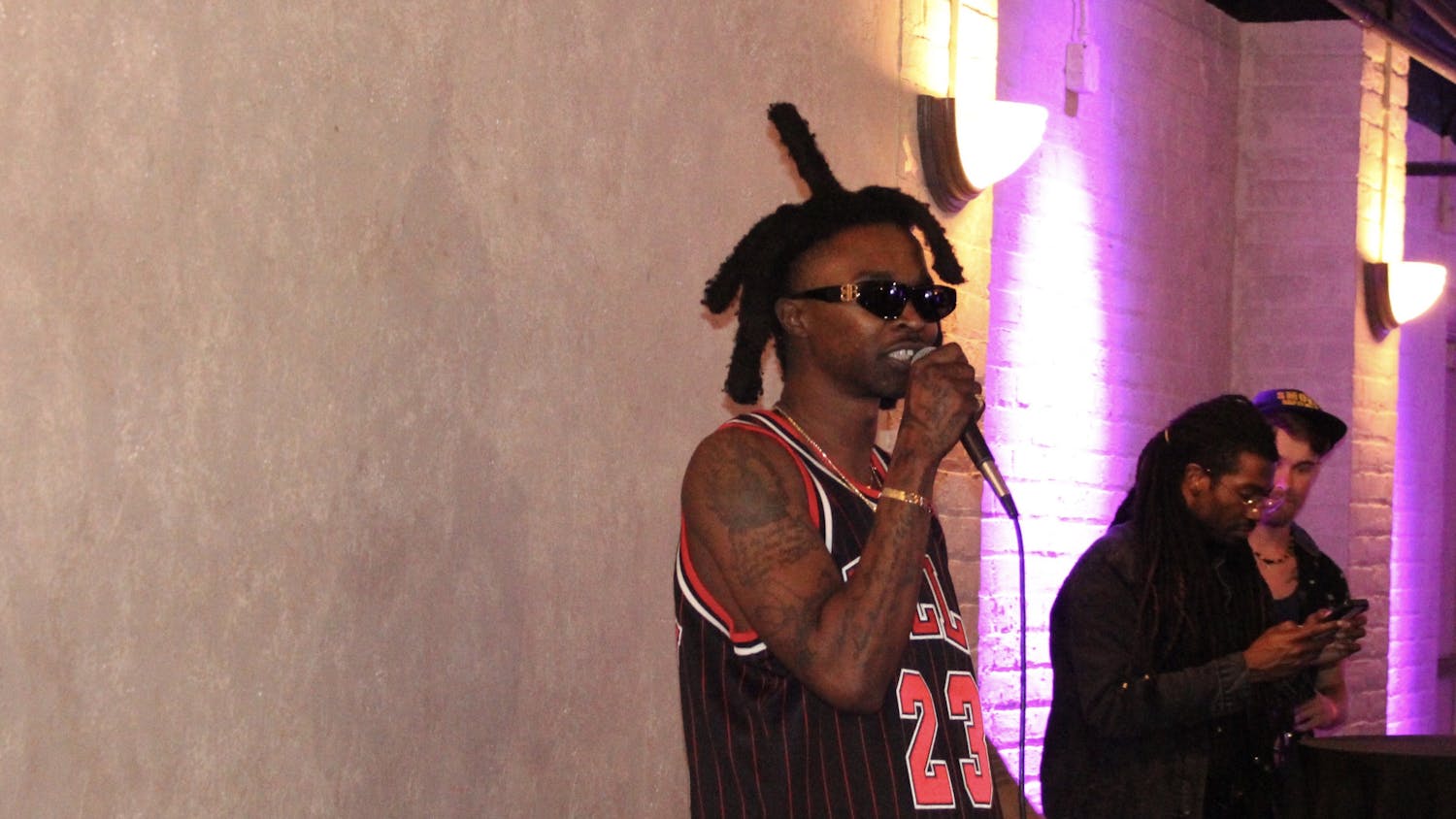Lines were blurred between hearing and listening in one of this summer’s biggest hits. If it weren’t for the topless women prancing around Robin Thicke, T.I. and Pharrell in the music video for “Blurred Lines,” no one would have heard what Thicke was “trying to say.”
The hit’s music video caught heat from feminist groups for its portrayal of women.
The unrated version of the video, found on Thicke’s VEVO account (warning: very NSFW), features topless models being grabbed at. The single generated attention from critics who claimed the lyrics were “rape-y.” But people have overlooked the lyrics and enjoyed the tune.
“I think that it’s a catchy and upbeat song, so it gets you in a happier mood,” said Stephanie Sheridan, a 19-year-old UF biomedical engineering sophomore.
UF psychology professor Laurie Mintz doesn’t think the song caught a lot of people’s attention because it isn’t that out of the norm for us.
“Objectification of women is so ingrained in our culture, in advertisements, in music videos, that we see this as normal,” she said. “It doesn’t even faze us.”
But Auckland University students Adelaide Dunn, Olivia Lubbock and Zoe Ellwood were outraged after reading the song’s lyrics. The 22-year-old women decided to parody Thicke’s music video for “Blurred Lines” as part of a revue show.
They worked together to come up with a feminist version of “Blurred Lines,” titled “Defined Lines.” Their video flips the gender roles and shows shirtless men clad in tight underwear dancing around Dunn, Lubbock and Ellwood.
“Defined Lines” was taken down from YouTube shortly after being posted.
“People who tried to watch it were messaging us, telling us the video was gone,” Lubbock said. “I thought it was unfair ... I think it had a lot to do with the fact that we had a lot of really negative comments on the YouTube.”
Dunn thinks it was flagged as inappropriate because of the “gender flipping.”
“It’s a strange thing to see men, like, in a situation that women are in often in music videos,” Dunn said.
After appealing YouTube’s decision, the women got the video back onto YouTube.
“I think that it shows you what YouTube is about,” said 19-year-old Karen Lara, a UF accounting sophomore. “You can have the same concept, one with men and women, and the one with women gets taken down. It favors women being shown as sex objects, not men.”
Ellwood thinks people are taking their song too seriously.
“We don’t literally mean all of the stuff that we were saying,” she said. “We don’t want to castrate men.”
The girls didn’t think they were being “too radical” when they made the video, Lubbock said.
“Maybe that has to do with our upbringing and the fact that New Zealand is a really liberal country,” she said.
Despite the negative feedback, they have received positive responses to their video.
“We’ve had a few messages from men … saying that they saw the video, and it made them really uncomfortable,” Ellwood said, “and they realized that if this was how women felt in everyday life, then they felt that they wanted to change things.”
A version of this story ran on page 10 on 9/12/2013 under the headline "Women fight song’s message"





